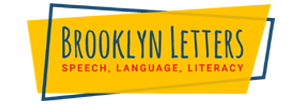SEARCHING FOR A WILSON READING TUTOR IN DENVER?
Meet our Reading Tutor and Specialist, Joanna, who Offers In-person Tutoring in her Office Located in City Park West!

M.S. Ed, Reading Specialist & Structured Literacy Dyslexia Specialist (C-SLDS)
Joanna earned her M.A. in Elementary Education and Literacy from Bank Street College of Education in Manhattan in 2011, and her B.A. in History from the University of Colorado in 2004. Joanna is certified by the Center for Effective Reading Instruction (CERI) as a Structured Literacy Dyslexia Specialist (C-SLDS). Joanna earned this certification through training at the Academy of Orton-Gillingham Practitioners and Educators (AOGPE) as well as with the digital, multisensory training program, Lexercise. She also has training with the Orton-Gillingham-based, multi-sensory program Preventing Academic Failure (PAF).
Joanna recently relocated to Denver, CO but is serving students all over the country through remote services. In the past, she worked with dozens of struggling readers, dyslexic readers, and readers needing enrichment across New York City. She continues to work with students who attend private schools, public schools, charter schools, and homeschools, so she understands the challenges students face in dramatically different educational environments. She also works with students who have a variety of educational differences including dyslexia, dysgraphia, ADHD, speech and language disorders, writing issues, and executive functioning issues.
At the beginning of tutoring services, Joanna administers comprehensive assessments to determine students’ strengths and weaknesses. She then creates personalized sessions to target specific areas of need. Joanna focuses on building independence by teaching students to use a toolbox of skills and strategies that they can refer to as they read and write. She has worked with many readers/writers who suffer from poor self-esteem related to their literacy skills, so she constantly strives to build students’ confidence during every session. Joanna has a calm, patient nature and a playful sense of humor that help her to connect with students on a personal level. She believes that interest and motivation are critically important in supporting more thoughtful, engaged reading.

The Wilson Reading System is a research-based approach to teaching reading and spelling to students of all ages. It is based on the Orton-Gillingham method of instruction, which was developed in the 1930s. The WRS can be customized according to the needs of each student and executed in small group or one-on-one settings.
Who Is The WRS For, And When Can It Begin?
WRS tutoring can be started in 2nd grade till 12th grade and even adulthood. It is useful to students who are not making sufficient progress or performing poorly in class.
Struggling with reading and writing can also be a sign of a learning disability. However, it is not a necessary outcome. In some cases, with some assistance, these difficulties can be overcome. The WRS is also helpful for adolescents, as it’s one of the few reading programs targeting this age group.
Wilson Tutors in Denver provide a systematic teaching approach and help elementary school students struggling with literacy. Since it is based on the Orton-Gillingham approach, it can be used effectively for elementary school students in various standards.
What Is The Difference Between Wilson And Orton Gillingham?
Wilson and Orton-Gillingham are two different approaches to teaching reading. Wilson is a phonics-based program that teaches students to read by sounding out words. Orton-Gillingham is a multisensory approach that uses visual, auditory, and kinesthetic cues to help students learn to read.
What is the difference between the two approaches? For one, Wilson focuses solely on phonics, while Orton-Gillingham takes a more holistic approach. Additionally, Orton-Gillingham is more structured than Wilson, as it follows a set lesson plan and progresses in a step-by-step manner.
Lastly, Wilson can be used with any student, but it is also beneficial for students with dyslexia. In contrast, Orton-Gillingham is specifically designed for students with dyslexia or other learning disabilities.
How Many Steps Are In The Wilson Reading System?
The Wilson Reading System is a research-based tutoring program that has helped thousands of students improve their reading skills. The program is divided into three levels, with each level consisting of 12 steps.
The first level focuses on phonemic awareness and phonics, while the second level focuses on fluency and vocabulary development. The third level focuses on comprehension and higher-level thinking skills.
Each step is made of sub-steps emphasizing on specific language skills. It’s important to start this development at the elementary school level as they provide a firm foundation for higher education and basic literacy skills.
Is The Wilson Reading System Evidence-Based?
The Wilson Reading System (WRS) is a highly structured, sequential program known for boosting reading skills for students with dyslexia. The program is based on the Orton-Gillingham approach, which has a long history of success in teaching reading to students with dyslexia.
The WRS was developed specifically for students with dyslexia, and research has supported its effectiveness. In addition, the WRS is backed by the International Dyslexia Association, the largest organization of its kind devoted to helping people with dyslexia.
Does Wilson Work for Dyslexia?

A new study has found that Wilson’s cognitive training program may help improve reading skills for individuals with dyslexia.
The research was carried out at the University of Pittsburgh, where the effects of WRS were observed. It was found that after eight weeks of using Wilson, participants showed significant improvements in reading speed, accuracy, and comprehension.
Though more research is needed to confirm these findings, the study provides hope that Wilson may be an effective treatment for dyslexia. If further research confirms these findings, Wilson could provide a much-needed tool for individuals with dyslexia to improve their reading skills.
Is Wilson A Tier 3 Intervention?
Wilson is a Tier 3 intervention because it is the most intensive level of support that schools can provide to students. It is typically used for students who are not responding to Tier 2 interventions.
The Wilson program is intense and involves one-on-one instruction that must be a minimum of an hour for five days a week. The program is designed to help students academically and put up with the content being taught in the classroom.
The program is known to help students improve their reading skills. However, some researchers question whether it is the most effective use of resources.
What Are “Just Words” In WRS?
Just Words in WRS is a term used to describe the misuse of words by writers. This can include using too many words when only a few are needed—for instance, jargon or acronyms that aren’t familiar to the reader or even clichés.
Ultimately, it means using language in a manner that doesn’t add anything to the meaning of what is being communicated.
How Is WRS Implemented In Tier 1, Tier II & Tier III Forms?
The three tiers of the WRS correspond to basic, intermediate, and advanced levels of improving reading skills in students.
In Tier 1 form, the system is used to teach basic reading and spelling skills to students who are just beginning to learn how to read.
In Tier II form, the system is used to teach more advanced reading and spelling skills to students struggling with reading.
In Tier III form, the system is used to teach specialized reading and spelling skills to students who have been diagnosed with a learning disability.
CONCLUSION
In conclusion, the Wilson Reading System is an effective tool for teaching reading to students with dyslexia. The program is based on the Orton-Gillingham approach and uses a multisensory approach to teaching reading.
The program is implemented in a three-tiered system, with Tier 1 being the most basic level and Tier 3 being the most advanced. Students who receive instruction using the Wilson Reading System make significant gains in reading skills.
If you’re living in Denver, Colorado, and you know an elementary school student struggling with reading, working with our Wilson reading tutor in Denver might be the best choice for you. Please visit Joanna in her office at City Park West for in-person reading tutoring. Contact us to learn more about which Denver neighborhoods we travel to.
At Brooklyn Letters, we have Wilson reading tutors in Denver who specialize in effective WRS teaching for children at the elementary level. Contact us to find the best Wilson reading tutor in Denver for your WRS tutoring needs.
We Also Offer:
Does your child struggle with reading? Chat with Brooklyn Letters Today!
Our highly qualified Wilson reading tutor in Denver can help your child improve his/her reading skills.
FREE CONSULTATION!!!
Call: (347) 394-3485, Text: (917) 426-8880
Email: [email protected]
(we respond to email right away!)
Craig Selinger
Latest posts by Craig Selinger (see all)
- NYC Middle School Transition Support Group - April 7, 2024
- Understanding Toddler Neurodevelopmental Evaluation - April 3, 2024
- Rare Diseases in New York City - February 29, 2024












